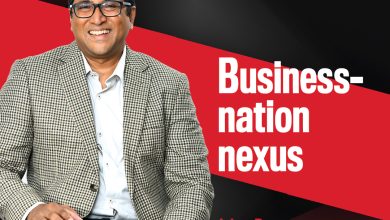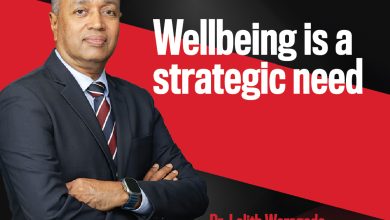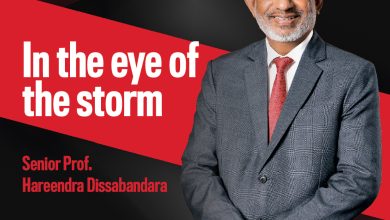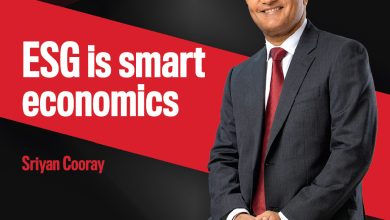SINGHAGIRI
Incorporated in 1977 by the late Sugathadasa Marasinghe, Founder/Chairman of Singhagiri, who introduced Samsung to Sri Lanka in 1983 and was later appointed as authorised agent for that brand’s range of electronic and electrical products. The business has remained a longstanding partner of Samsung and continues to serve its loyal customers with innovative products. It also offers flexible rates for laptops, air conditioners, mobiles, washing machines and TVs, as well as products of many other brands of international repute. Its flagship store is located adjacent to its main service centre for customer convenience.
Q: How does respect in the workplace work to foster admiration for an organisation in such a manner that it becomes a so-called ‘employer of choice’?
A: Singhagiri is a legacy company with its roots firmly in Sri Lanka and enjoys a very strong local heritage. Over the decades, our business has built an inclusive work culture based on Sri Lankan values.

Chief Executive Officer
In the past few years, Singhagiri has built on this strong heritage to transform its workplace into a much more dynamic environment where employees’ voices are heard. This strengthens their feeling of being respected and empowered, thereby creating a sense of ownership across the organisation.
At Singhagiri, we have striven over the last few years to build a culture of leadership at every level through training and empowerment. Having implemented this approach, we find that our employees in turn develop their strengths and work towards a common vision.
Our transformation and resultant growth as a business is ample proof that you shouldn’t think twice when it comes to investing in your organisation’s human resources. This will reflect in the way employees interact with stakeholders and the external community.
Q: What are the short and medium-term priorities of Singhagiri under the prevailing economic conditions?
A: Uncertainty has become the norm in today’s volatile business environment amidst the pandemic, which was followed by catastrophic economic events. Against this backdrop, being authentic to one’s stated purpose of business, as well as acting in the long-term interests of the organisation and its stakeholders are our utmost priorities.
In a crisis, the wisest thing for any business to do is go back to basics and follow the fundamentals of business. At the same time however, we cannot lose sight of employing some level of medium to long-term planning.

Without such planning, a business can lose sight of its greater purpose. We have been balancing these practices at Singhagiri, which has yielded short-term results while creating medium-term stability.
Q: How should corporate entities balance the ‘triple bottom line’ – especially given the volatility of today’s business environment?
A: Singhagiri employs over 400 direct and many indirect employees, and we ensure that no one loses their livelihood owing to macroeconomic impacts. In this new era of corporate responsibility, such an approach plays a large role in Singhagiri’s work culture.
In these trying times, we have supported employees of ‘executive and below’ designations with inflation allowances and ration packs.
Despite facing many difficulties, we decided to maintain the quality and standards we sustained throughout our journey without compromising on either. Therefore, our customers get the best possible quality for the money that they invest. These measures have resulted in a sustainable business that provides returns to shareholders while giving back to the community.
Q: In what ways can the quality of products and services secure respect for businesses over the longer term?
A: Singhagiri relies on its values and exceeds its obligations despite facing many challenges. We have made a conscious decision not to compromise on quality. Quality products help maintain customer satisfaction and loyalty, and reduce the risk and cost of replacing faulty goods, which in turn has a cyclical effect that increases our sales volumes through word-of-mouth recommendations.
Above the line advertising will only take you so far; investing in product quality however, will embed your brand in customers’ hearts.
For a consumer durables retailer, a convenient strategy in a crunch is to have manufacturers reduce product quality. This however, could have negative consequences for business. So in an unprecedented economic crisis, it’s vital that businesses take decisions in line with their values and principles – as Singhagiri does.
QUICK-FIRE ROUND
Three recommendations to revive Sri Lanka’s economy
Maximise national productivity.
Have consistent longer term state policies to attract investment.
Reform the education system to build the long-term capacity of people and their attitudes.
Three most admired global business leaders
Ratan Tata
Indra Nooyi
Rajiv Bajaj
Telephone 5413413 | Email websales@singhagiri.lk | Website www.singhagiri.lk







